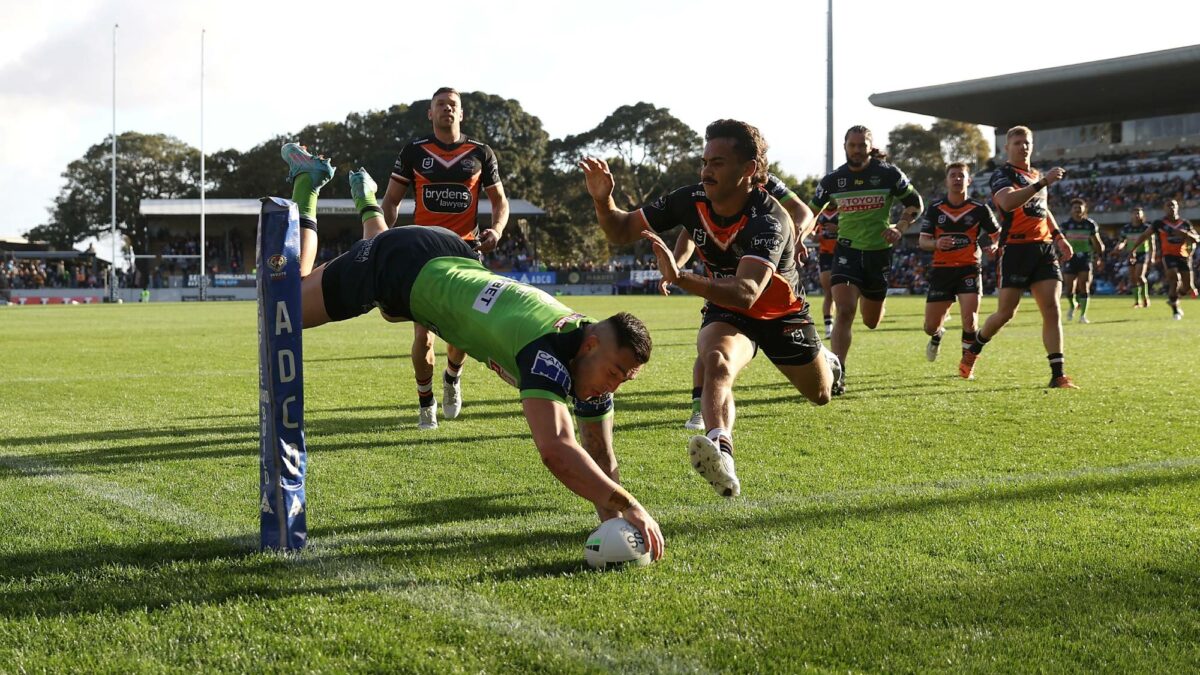
After Brisbane’s late-season collapse continued with their 22-12 loss to St George Illawarra on Saturday night, the eight teams were decided once and for all when Canberra thrashed the last-placed Wests Tigers at Leichhardt Oval on Sunday to claim eighth spot.
The Raiders raced to a 42-0 half-time lead on the way to a 56-10 triumph to ensure early on that they will travel to Melbourne for their elimination final.
Penrith will open the finals against western sydney rivals Parramatta in their qualifying final at BlueBet Stadium after the Panthers wrapped up the minor premiership a fortnight ago.
NRL finals draw Week 1
Qualifying Final: Friday, September 9 at 7.50pm (AEST), BlueBet Stadium
Penrith Panthers (1) v Parramatta Eels (4)
Elimination Final: Saturday, September 10 at 5.40pm (AEST), AAMI Park
Melbourne Storm (5) v Canberra Raiders (8)
Qualifying Final: Saturday, September 10 at 7.50pm (AEST), PointsBet Stadium
Cronulla-Sutherland Sharks (2) v North Queensland Cowboys (3)
Elimination Final: Sunday, September 11 at 4.05pm (EST), Allianz Stadium
Sydney Roosters (6) v South Sydney Rabbitohs (7)
Canberra coach Ricky Stuart fired a thinly-veiled barb at the NRL over the scheduling of the finals series as the Raiders faced up to the daunting task of an elimination final away to Melbourne on a six-day turnaround. Stuart will only have a handful of days to prepare his side for the trip south as a result of the NRL’s finals draw.
By contrast, the Sydney Roosters and South Sydney Rabbitohs were selected to play on the Sunday in week one of the finals, with both sides afforded nine days between their round 25 game and their elimination final rematch.
“I’m just happy to be in the semis,” Stuart said. “We are a club that’s very used to getting the short straw.
“I thought we would play on Sunday and then when we had 24 hours less (until the game) I thought to myself I’d make a couple of changes. Because we are playing on the Saturday that gave me the idea to rest a few players.”
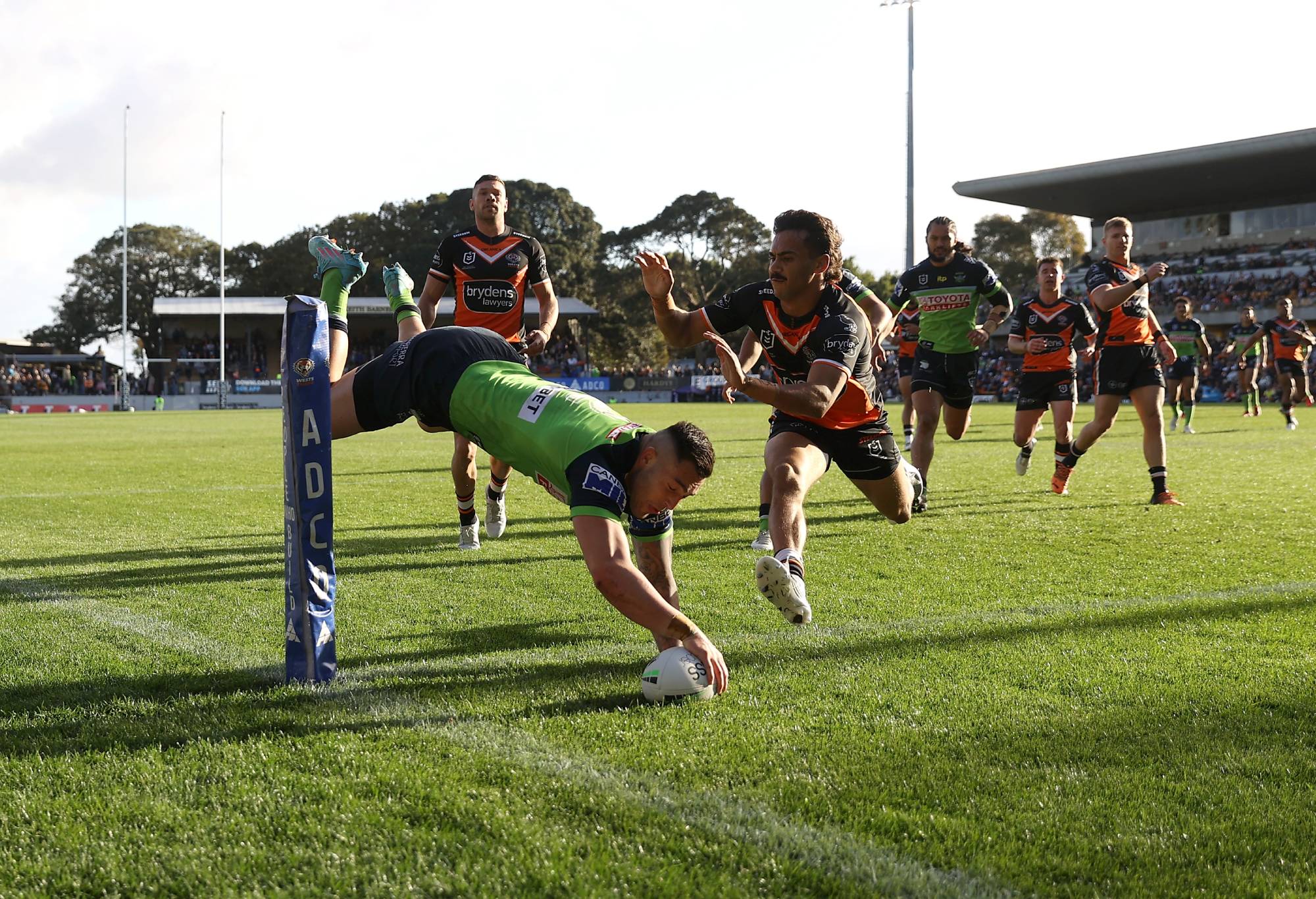
(Photo by Mark Kolbe/Getty Images)
Cronulla, who played their final game of the season against Newcastle on Sunday, will also play on a six-day turnaround when they host North Queensland on Saturday.
Tickets will be on sale for all matches to the competing clubs’ ticketed members at 10am on Monday, while tickets for the competing clubs’ non-ticketed members and NRL Account holders will be on sale at 1pm. Finals series tickets will be on sale to general public at 10am on Tuesday.
The winner of the qualifying finals progress directly to week three. Whichever team loses between Penrith and Parramatta will play the winner of the Storm vs Raiders eliminator.
In the other half of the draw, whoever loses between Cronulla and North Queensland will host a semi-final against the Roosters or Rabbitohs.
Eels five-eighth Dylan Brown isn’t daunted by the task of beating the premiers to progress.
“They’re the one team I want to play in this time of the finals,” Brown said. “That’s who I want to knock out first.
“Beating Penrith is probably one of the hardest things to do against any team. Beating them at home is the hardest thing to do in league. When you do that, it shows what we’re all capable of.
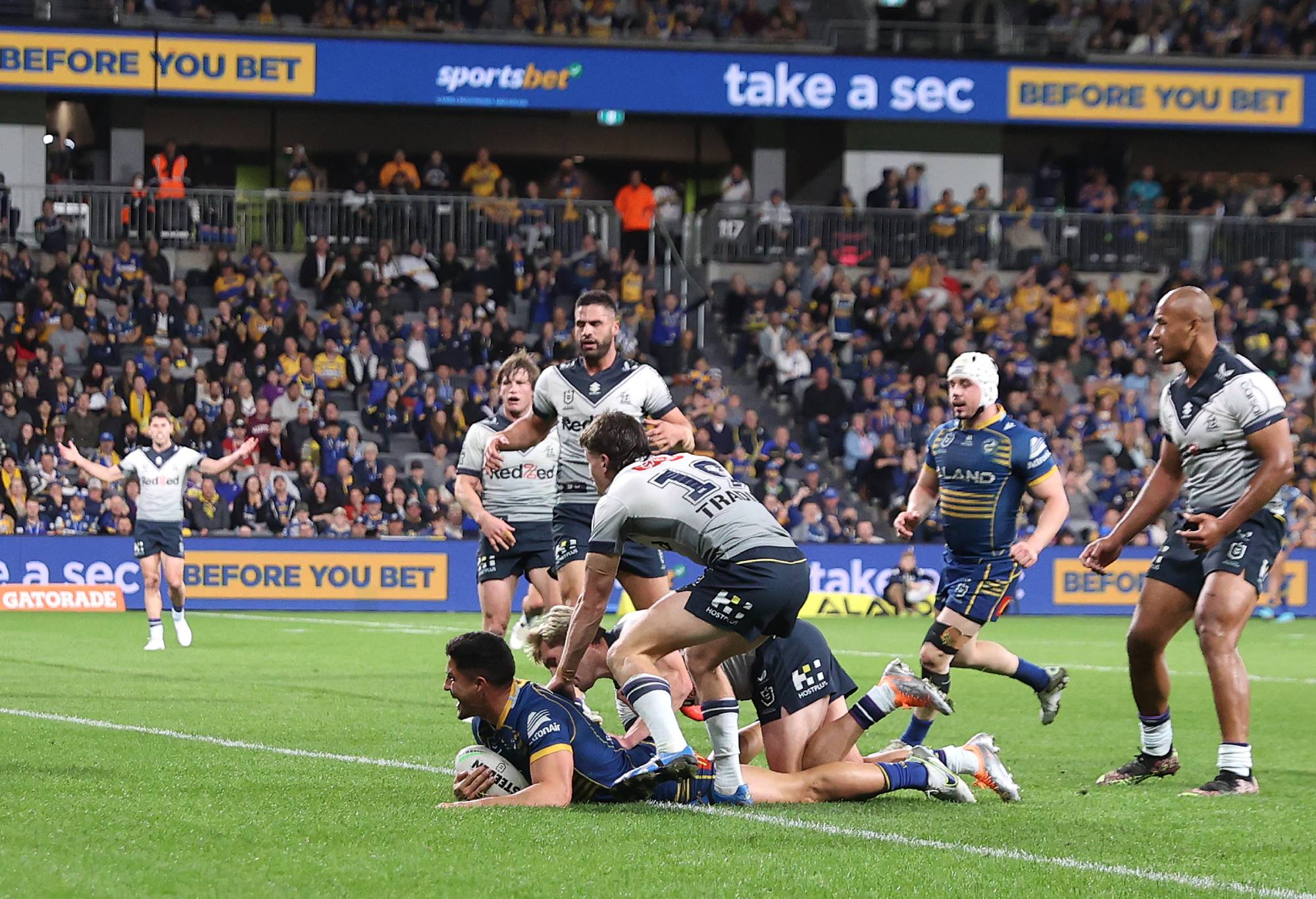
(Photo by Cameron Spencer/Getty Images)
After the 22-14 loss to the Eels left his team outside the top four in the playoffs for the first time since 2014, Storm coach Craig Bellamy admitted it would be tough to get the trophy from fifth.
“It’s hard to do that. To win the comp, you have to win four games in a row, and the last three of them you’re travelling,” Bellamy said.
“It is difficult without a doubt, but it’s going to get done at some stage. There’s some quality teams this year, and there’s not a lot of difference in the teams.
“Certainly, Penrith were probably the real stand out early in the season, but there’s a lot of things that change towards the end of the season, after Origin. I still think there’ll be a few twists and turns that come before it all finishes.”
How the finals work
The eight teams are divided into two groups of four, the top four (1-4) and the bottom four (5-8), who play games among themselves in the first week of finals.
In the top four, first play fourth and second play third in qualifying finals. The higher-placed teams, first and second, have the right to host these finals in their home state.
One of the advantages given to teams in the top four is that they cannot be eliminated if they lose in the first week.
However, the winners of these finals have a bye in the second week and host a preliminary final in their home state in the third week.
Meanwhile, the losers of these finals must play again in the second week and, if they survive that, may have to travel interstate to play their opponent in the third week. So winning a qualifying final is a significant advantage.
First Qualifying Final: first ranked team hosts fourth ranked team
Second Qualifying Final: second ranked team hosts third ranked team
In the bottom four, fifth play eighth and sixth play seventh in elimination finals. Again, the higher-placed teams, fifth and sixth, have the right to host these finals in their home state.
As the name suggests, the loser of these finals will be eliminated from the finals series. The winners go on to play the losers of the qualifying finals in semi-finals in the second week.
First Elimination Final: fifth ranked team hosts eighth ranked team
Second Elimination Final: sixth ranked team hosts seventh ranked team
These four games are played across four time-slots: Friday night, Saturday afternoon, Saturday night, and Sunday afternoon.
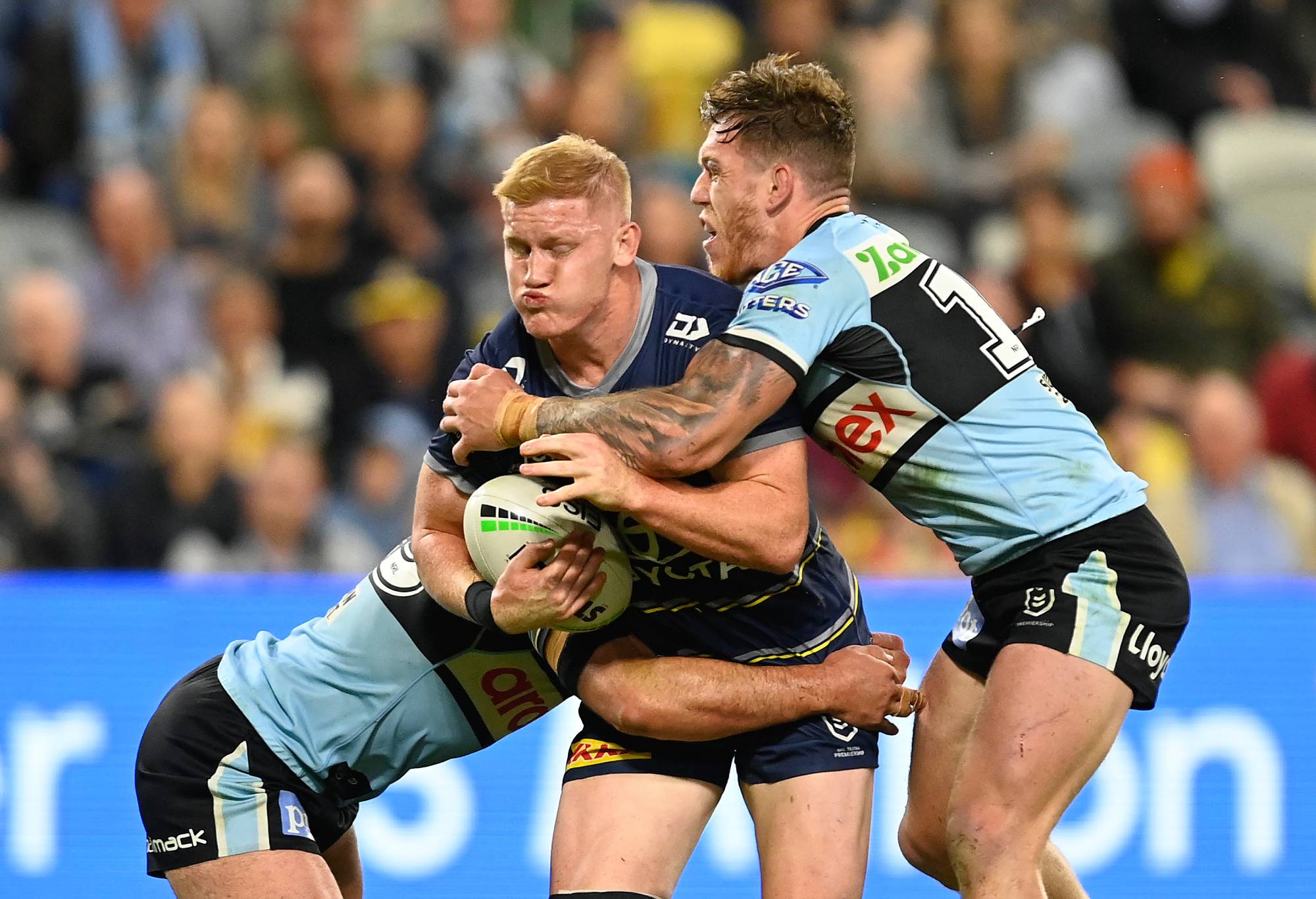
(Photo by Ian Hitchcock/Getty Images)
The second week
In the second week of the finals series two semi-finals are played between the two teams that lost the qualifying finals and the two teams that won the elimination finals.
The teams that won the qualifying finals have a week off, while the teams that lost the elimination finals are out of the running.
The teams that lose these semi-finals will also be eliminated, while the teams that win will go through to face the qualifying final winners in preliminary finals in week three.
The finals series is organised so that the loser of first versus fourth will play the winner of fifth versus eighth, and the loser of second versus third will play the winner of sixth versus seventh.
The losing qualifying final teams are given the right to host these matches in their home state. These games are played across two time-slots: Friday night and Saturday night.
First Semi-final: loser of First Qualifying Final hosts winner of First Elimination Final
Second Semi-final: loser of Second Qualifying Final hosts winner of Second Elimination Final

(Photo by Cameron Spencer/Getty Images)
The third week
In the third week the winners of the qualifying finals from the first week play the winners of the semi-finals from the second weeks in preliminary finals.
These preliminary finals determine who enters the grand final. The teams who win preliminary finals are through to the grand final, the teams who lose them are eliminated from the finals series.
There are a wide variety of potential preliminary final combinations available depending on how the first two weeks of the finals series pan out.
The winner of the first qualifying final plays the winner of the second semi-final, and the winner of the second qualifying final plays the winner of the first semi-final. This guarantees that it is not possible for any two teams to meet twice in the first three weeks of finals.
The qualifying final winners not only have had a week off as a bye, but also get to host these games in their home state, giving them a significant advantage. These games are played across two time-slots: Friday night and Saturday night.
First Preliminary Final: winner of First Qualifying Final hosts winner of Second Semi-Final
Second Preliminary Final: winner of Second Qualifying Final hosts winner of First Semi-Final
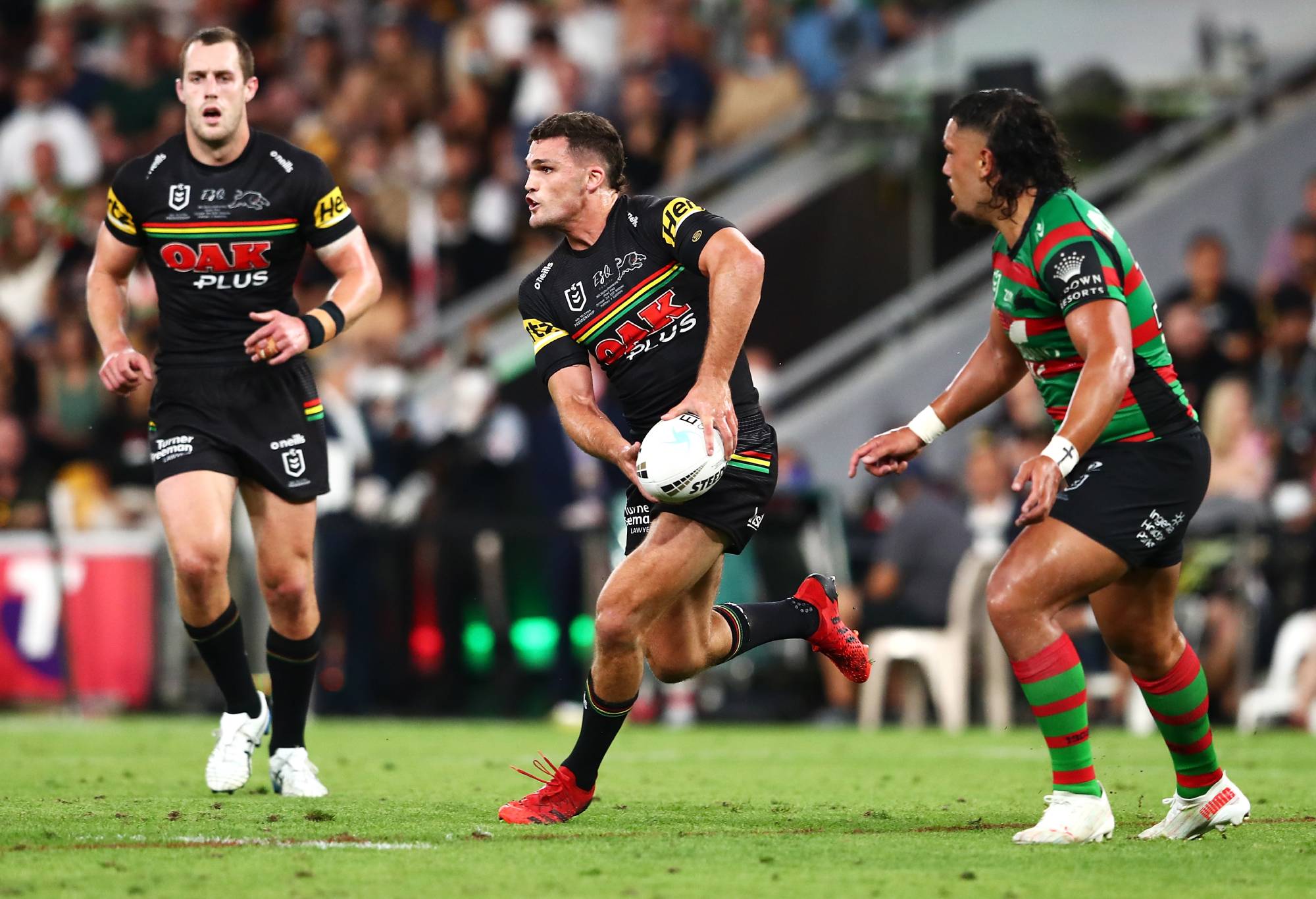
(Photo by Chris Hyde/Getty Images)
The fourth week
In the fourth week of finals, the two teams that won the preliminary finals play each other in the grand final. The winner of this match is declared the year’s premiership team.
The grand final could theoretically be between any two teams in the finals series, except for those that play elimination finals against each other in the first week and cannot possibly both progress.
Although one team will be listed first as the ‘home’ team, this fixture does not change venue regardless of the home state of the teams involved.
It has been played every year at ANZ Stadium since it was constructed in 1999, but is being played in Brisbane in 2021. It is currently played on a Sunday evening time-slot.
Grand Final: winner of First Preliminary Final meets winner of Second Preliminary Final

Leave a Reply